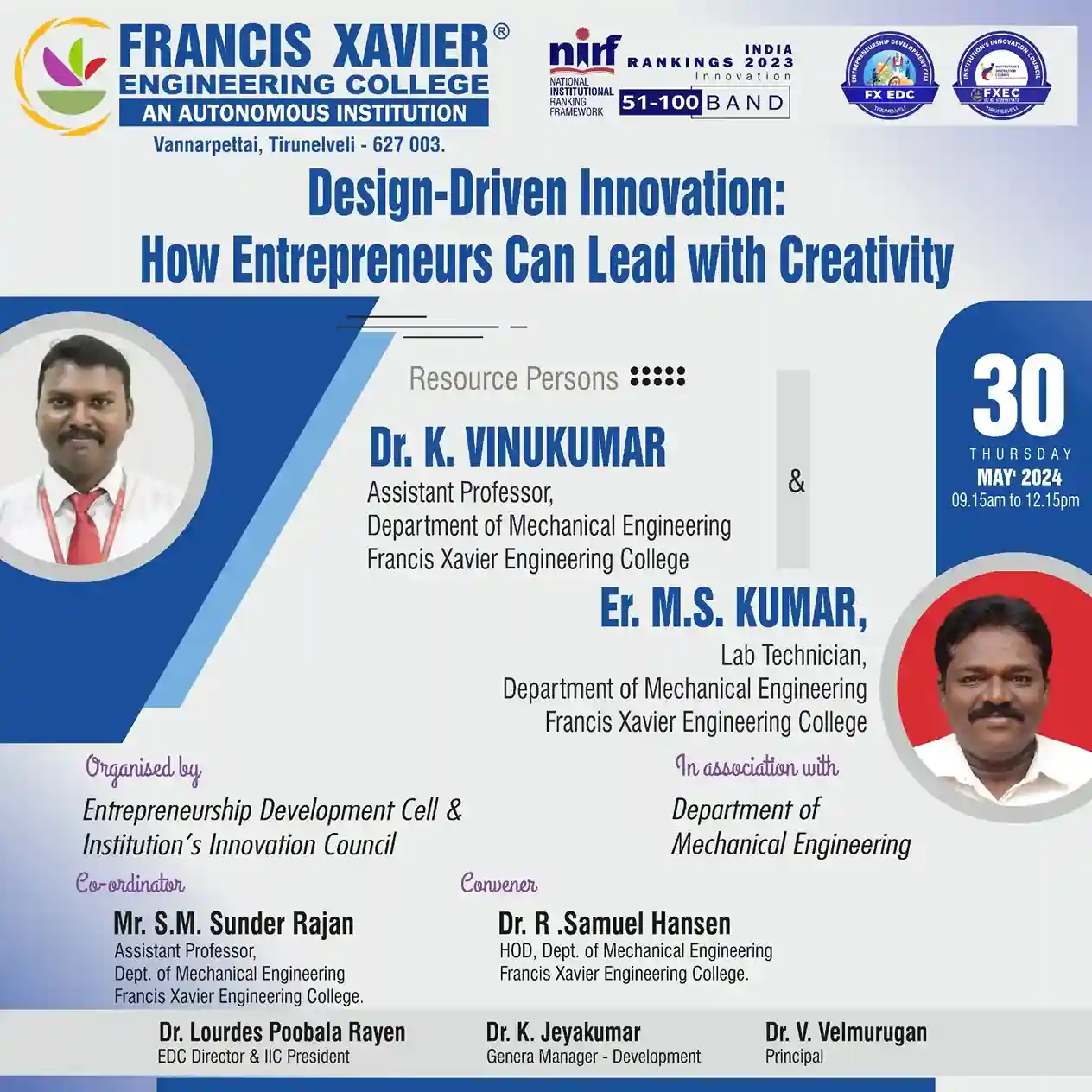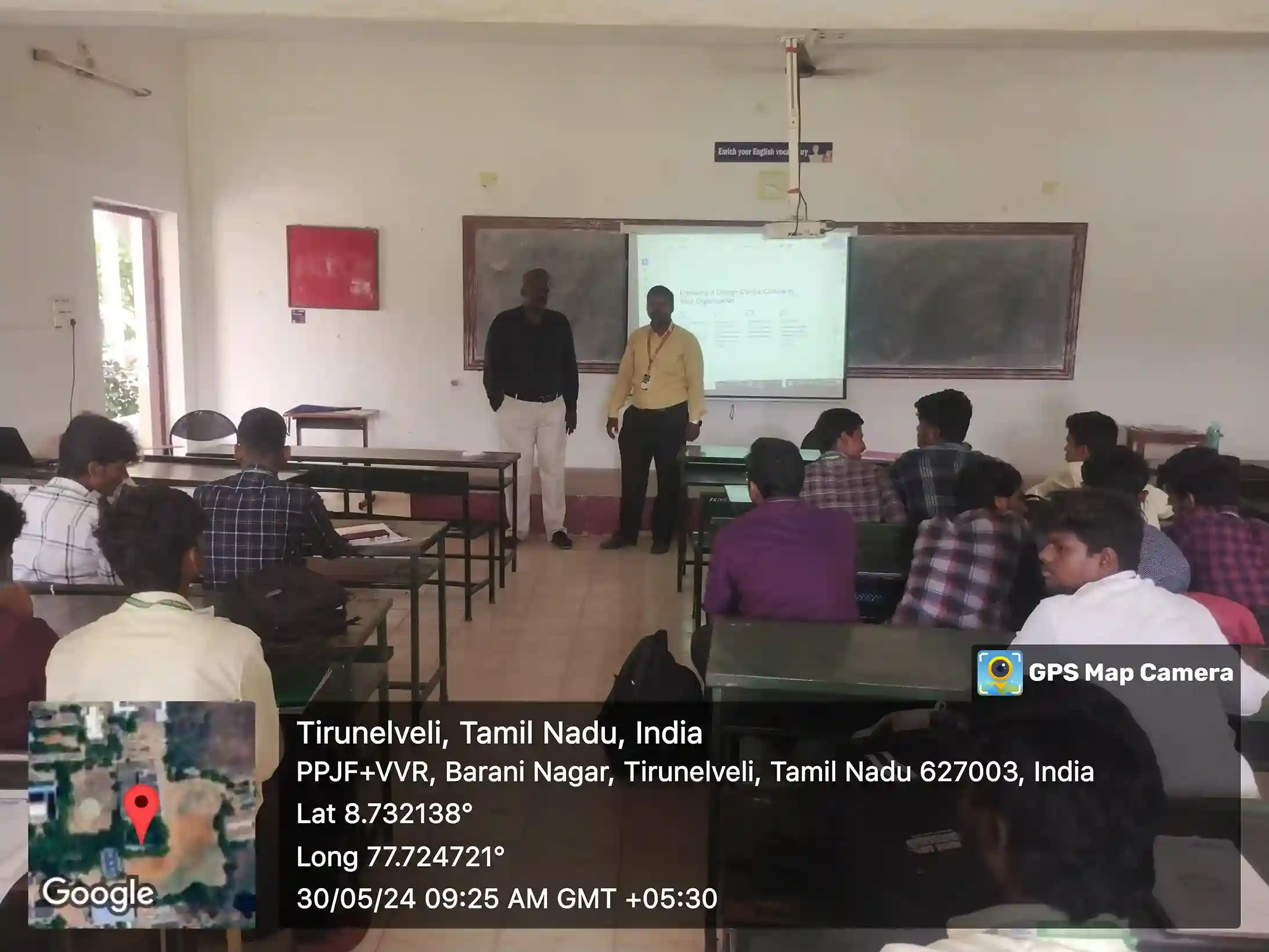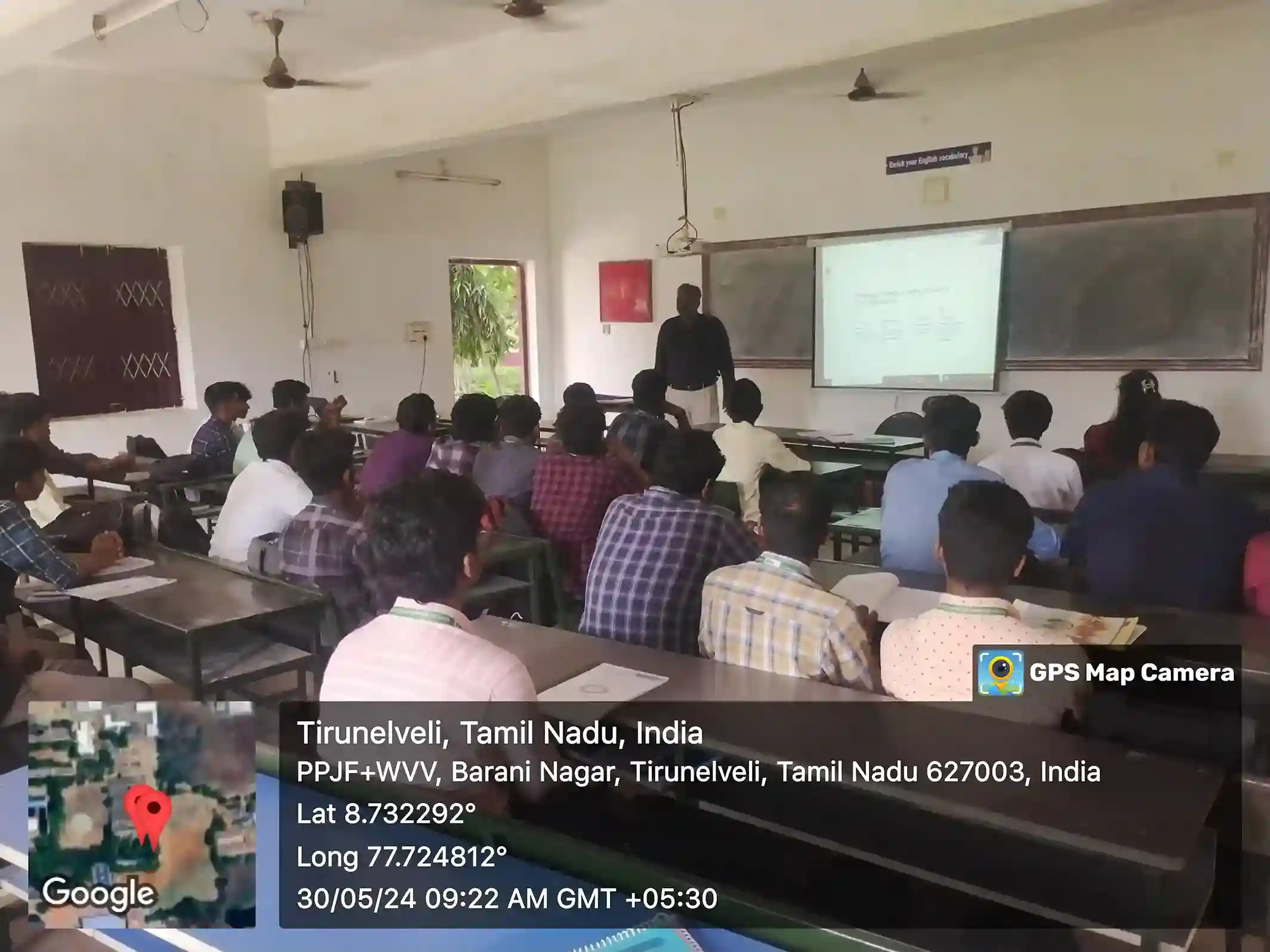
On 30th May, 2024 a discussion on “Design-Driven Innovation: How Entrepreneurs Can Lead with Creativity” was organized by Entrepreneurship Development Cell & Institution’s Innovation Council in association with the Department of Mechanical Engineering at 09:15 am to 12.15 pm. Dr.K.Vinukumar, AP/Mech, FXEC and Er.M.S.Kumar, Lab Technician were the resource person. 40 students and 1 faculty member participated in the program.
The guest speakers explained the design-driven innovation and its importance for the development of Innovative products which eventually helps the innovators to develop startups. He also highlighted the crucial role of creativity in differentiating products and services in a competitive market. The Key Concepts are Understanding Users, Creative Problem-Solving, Iterative Development. Differentiation through Design and Cross-Disciplinary Collaboration. The speaker asked the students to integrate design-driven innovation into the development of new mechanical systems or devices. This might involve collaborating with engineers and designers to create prototypes of new mechanical components, conducting user testing and gathering feedback to refine these prototypes, and staying informed about the latest materials and manufacturing processes to push the boundaries of what is possible in mechanical design. Design-driven innovation is a powerful approach for entrepreneurs aiming to lead with creativity. By focusing on user needs, fostering a culture of creative problem-solving, and embracing iterative development, entrepreneurs can create breakthrough products and services. In the context of mechanical engineering, this approach can lead to innovative solutions that advance the field and meet complex user demands. The talk concluded in a lively Q&A, where students delved deeper into design thinking. Their questions covered clarification on specific aspects, implementation strategies, and even the adaptability of these principles across various industries. This interactive exchange yielded valuable insights and highlighted the real-world application of design thinking.

